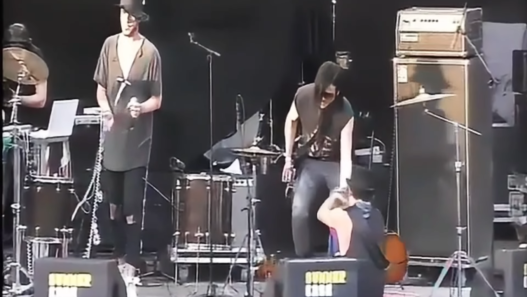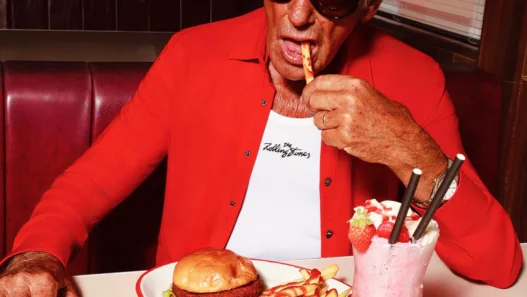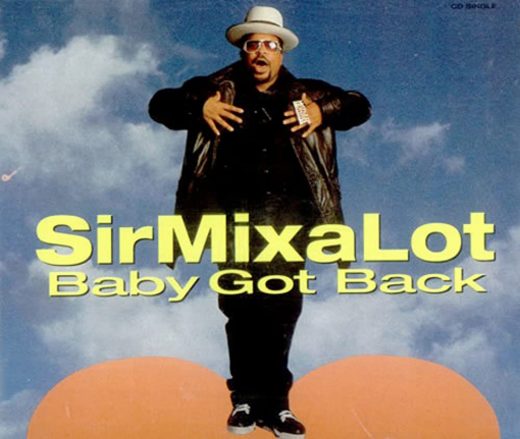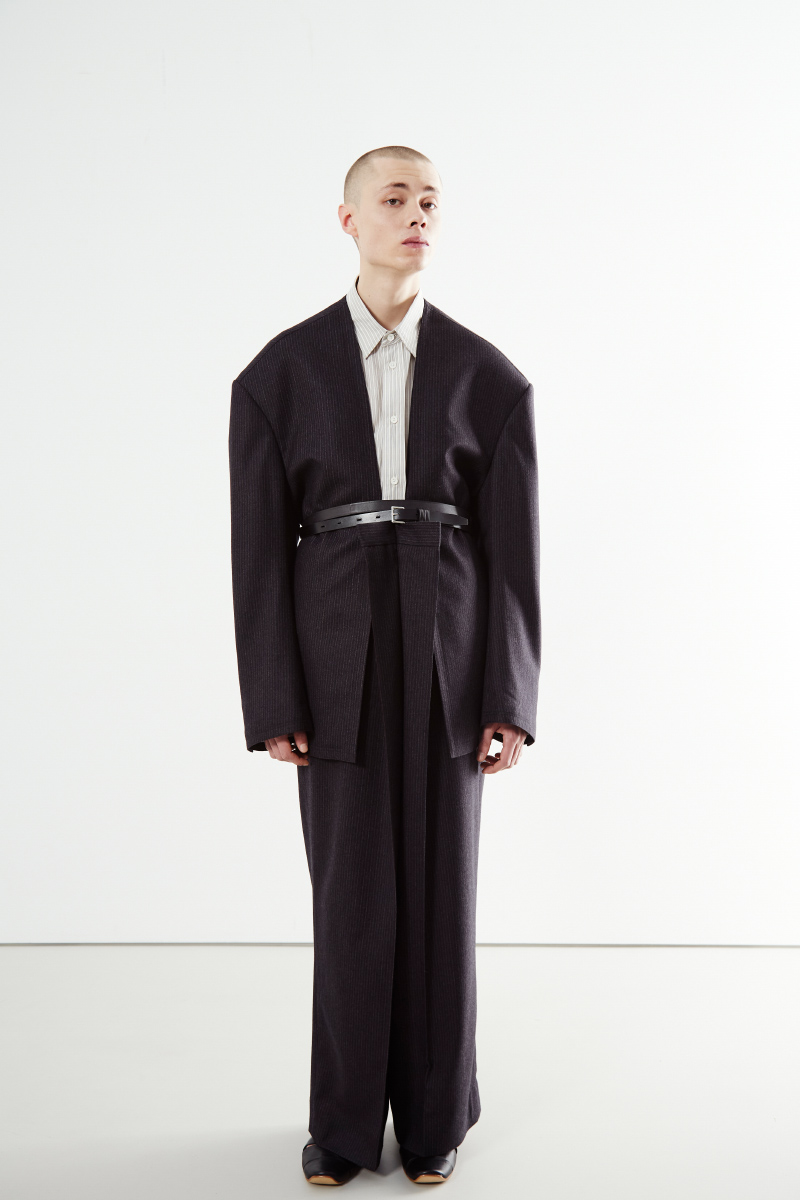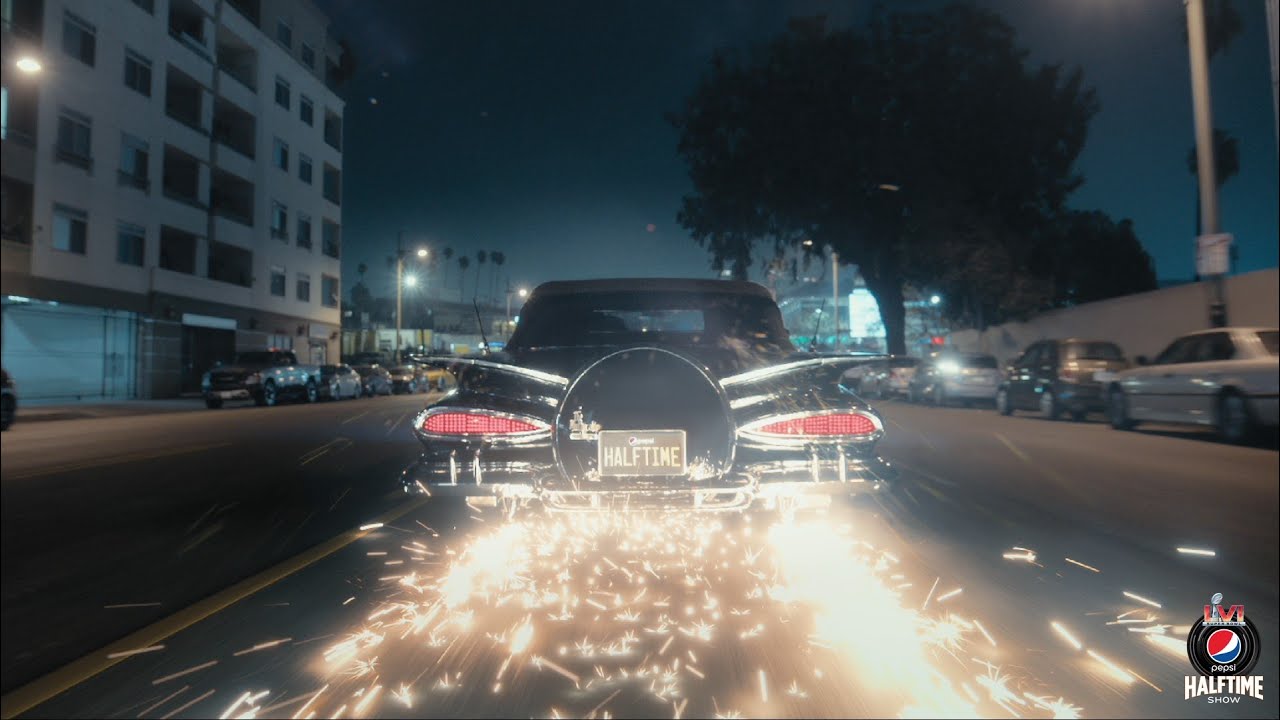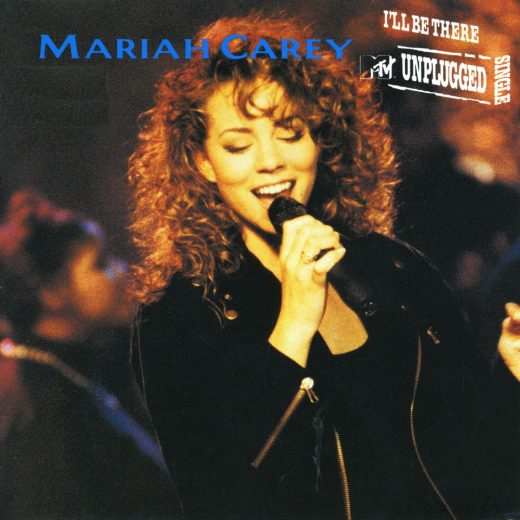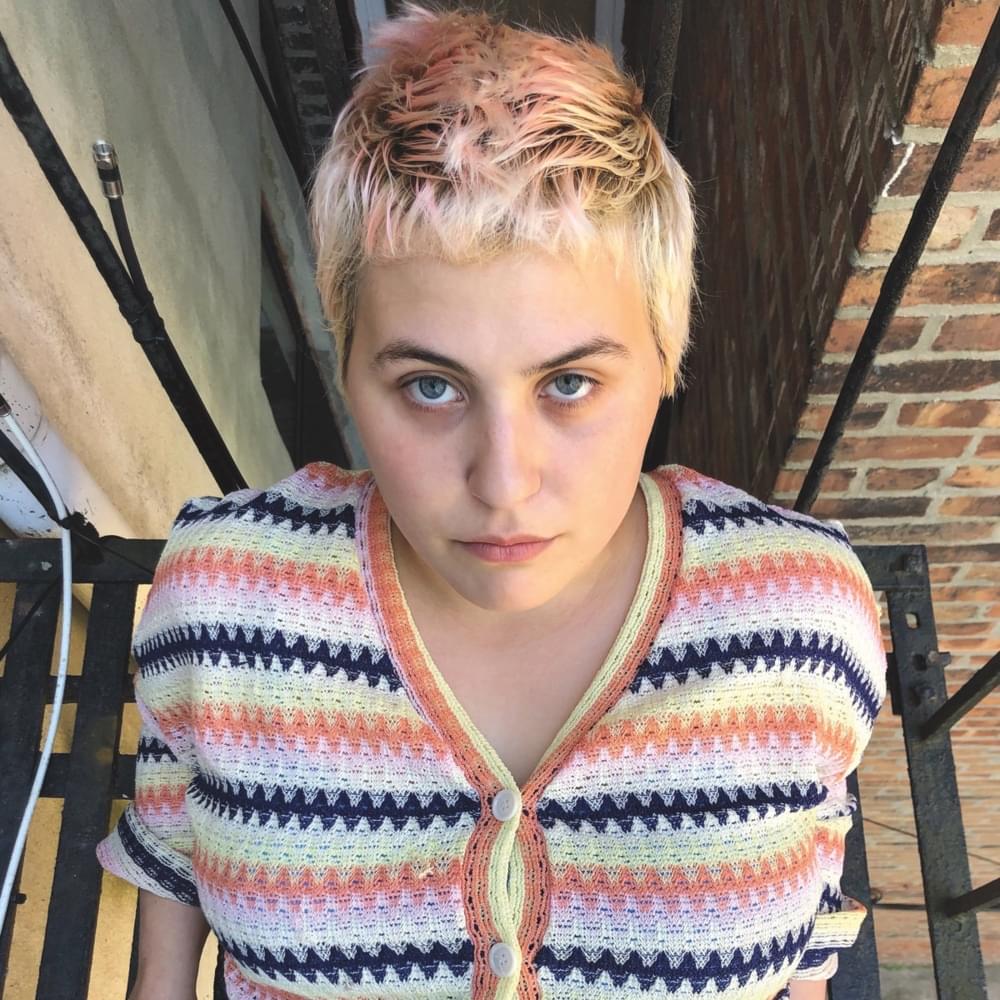According to one of our preferred sources:
Blame Budweiser. One Super Bowl Sunday, the Seattle rapper Sir Mix-A-Lot was in a hotel room on tour, watching TV with his girlfriend Amylia Dorsey-Rivas, and something about the women surrounding Spuds Mackenzie in a Bud commercial set Mix-A-Lot off. In a Vulture oral history years later, Mix-A-Lot told the story: “Each one was shaped like a stop sign, with big hair [and] straight up-and-down bird legs. There’s nothing wrong with that, but I was so sick of that shit.”
At the time, Amylia Dorsey-Rivas was having trouble finding work acting or modeling, and this seemed cosmically wrong to Mix-A-Lot. It seemed wrong, too, when Mix-A-Lot would see beautiful, athletic women who would tie sweaters around their waists to hide their butts. So he wrote a song about it, and he put that song’s thesis right up front: “I like big butts, and I cannot lie!” Mix-A-Lot didn’t think he had an anthem on his hands, and he rejected the idea that this big-butts song should be his single, but Rick Rubin, the guy who’d signed Mix-A-Lot to his new Def American label, eventually convinced him. Mix-A-Lot needed a fast, uptempo club track, and if he gave his big-butts song the right kind of beat, that song could be a real hit.
A few months later, Mix-A-Lot found himself at a video shoot, standing atop a 50-foot fiberglass ass. A few months after that, the big-butt song had become a hit and a cultural phenomenon. “Baby Got Back” was a goof, a novelty song, but it was also a sort of cultural flashpoint. Was Sir Mix-A-Lot degrading women by only talking about their butts? Or was he celebrating Black standards of beauty in a cultural climate where healthy women were made to feel ugly? Was Mix-A-Lot objectifying women, or was he celebrating them?
Three decades later, the answer seems pretty clear: He was doing both. “Baby Got Back” is a proudly horny and single-minded piece of music, and it’s also a conversation piece that’s echoed down through the decades. I’ve read articles where people claim that “Baby Got Back” changed the whole cultural climate, ending a certain willowy beauty standard and creating a world where skinny women get butt injections. I think that’s a wild overstatement. A whole lot of things had to happen to usher in the age of ass, and the success of “Baby Got Back” was just one of those things. But when you’re dealing with a song as joyously ridiculous as “Baby Got Back,” you kind of have to exaggerate. It’s only right.
Before “Baby Got Back” came to define his entire public persona, Sir Mix-A-Lot was an underground figure — a regional rap star who’d achieved a pretty incredible level of success without any help from the mainstream music business. Anthony Ray was born in the Seattle suburb of Auburn, and he grew up in HUD apartments in the city. (When Ray was born, the #1 song in America was Little Stevie Wonder’s “Fingertips (Pt. II).”) Ray’s mother worked as a nurse in a county jail, and Ray himself rode a bus across town to a predominantly white public school, where a music teacher encouraged him. As a teenager, Ray started DJing at local parties, and he became Sir Mix-A-Lot. (He was never officially knighted.)
This was in the early ’80s, when rap music was in its infancy. Mix-A-Lot liked rap, but he also liked funk and synthpop. As a DJ, he played all of it. On the party circuit, Mix-A-Lot got to know a local radio DJ, and the two DJs teamed up with a local businessman to start an independent label called Nastymix in 1985. Mix-A-Lot, who once worked at a video arcade and who liked playing around with electronics, made his own beats on samplers and drum machines. In 1986, he released a single called “Square Dance Rap” that picked up steam in a few scattered regions, selling enough copies to make Nastymix a real business.
In 1988, Mix-A-Lot released his debut album SWASS — an acronym for “some wild-ass silly shit.” The album became a huge independent word-of-mouth success, racking up platinum sales without a major-label budget. Mix-A-Lot’s local-pride anthem “Posse On Broadway,” a genuine rap classic, cracked the Hot 100, reaching #70. Other tracks from the album lingered in different ways. Seventeen years later, songwriter/producer Cee-Lo flipped the hook from “SWASS” on the Pussycat Dolls’ breakout hit “Don’t Cha,” and Mix-A-Lot got a songwriting credit. (“Don’t Cha” peaked at #2. It’s a 5.)
The success of SWASS was deeply improbable. In 1988, West Coast rap was only just starting to become a commercial force, and there were no Seattle rappers with any kind of national prominence. (It would be many years before more Seattle rappers broke out, though one of them will eventually appear in this column.) By loudly repping Seattle on a national stage and by depicting himself as a self-deprecating everyman, Mix-A-Lot made himself a local institution in the Pacific Northwest. In 1989, Mix-A-Lot followed SWASS with his album Seminar. None of the singles from Seminar made the Hot 100, but two of them went top-10 on Billboard‘s rap chart, and the album went gold.
After Seminar, Mix-A-Lot got into contract disputes with his Nastymix partners, and the major labels came calling. Rick Rubin had broken off from his Def Jam co-founder Russell Simmons and ventured off on his own, starting his Def American label in 1988. Rubin signed a lot of rock and metal bands to Def American, and he hit paydirt with the Black Crowes, whose first two albums did huge business in the early ’90s. But Rubin had made his name as a bare-bones rap producer, and his sound wasn’t too different from what Mix-A-Lot had been making on his own. By the early ’90s, rap’s sound had moved on from Rubin’s 808 boom-crunch, with intricate layers of samples becoming the sound of the day. As producers, though, Sir Mix-A-Lot and Rick Rubin were kindred spirits. They both believed in stripping things down to the core.
Rubin didn’t know how to get ahold of Mix-A-Lot, so he had a friend call the Nastymix office. He reached Mix-A-Lot by posing as a writer for Right On magazine. In Fred Bronson’s Billboard Book Of Number 1 Hits, Mix-A-Lot says, “I’m thinking, ‘He works for Right On now? I thought he was doing a little better than that!’”
When Mix-A-Lot got the idea for “Baby Got Back,” his girlfriend Amylia Dorsey-Rivas came up with a funny intro, doing a valley-girl voice to complain about a girl’s butt. The girl on the intro sounds both repulsed and attracted to this butt, and then she finally says the quiet part loud: “She’s just so… Black!” When Mix-A-Lot says that he likes big butts and he cannot lie, he essentially cuts that valley-girl character off. He’s had enough of that talk, and he’s about to have his say.
“Baby Got Back” came out at the tail-end — no pun intended — of rap’s Black-pride Afrocentric era, the period when rappers were wearing kente cloth and leather Africa medallions. “Baby Got Back” is pretty far away from all of that; nobody’s ever going to mistake it for an X-Clan song. From a certain perspective, though, “Baby Got Back” is an anti-colonialist protest — an attempt to push back against a beauty standard that made Black women feel bad about themselves. Mix-A-Lot is tired of magazines saying flat butts are the thing. He ain’t talking ’bout Playboy ’cause silicone parts are made for toys. Your girlfriend might roll a Honda, playing workout tapes by Fonda, but Fonda ain’t got a motor in the back of her Honda. Mix-A-Lot will keep his women like Flo Jo — Florence Griffith-Joyner, the Black Olympic runner whose leg muscles looked like they were made out of steel.
Maybe the reason “Baby Got Back” struck a cultural chord is that a funny song about butts, if it arrives at the right moment, can also be a political statement. “Baby Got Back” is a funny song about butts. On “Baby Got Back,” Sir Mix-A-Lot strikes a stand-up comic’s tone. “Baby Got Back” is essentially just one long string of funny, memorable catchphrases and punchlines, but there’s an actual point buried somewhere in there, if you’re willing to hear it. The song’s subtext is part of its actual text, but Mix-A-Lot keeps his focus. When Mix-A-Lot feels like he has to point out that big butts are good, there’s a cultural context for it, but he’s not really interested in rapping about much other than big butts. He sticks to that subject with a ridiculous single-minded intensity, giving his case for the superiority of big butts like a lawyer making a closing argument.
Sir Mix-A-Lot understood the power of a memorable line, and virtually everything he says on “Baby Got Back” elbows its way directly into your brain. “Oh, bayyy-bee! I wanna get witcha! And take your pic-cha!” “Fellas? Yeah! Fellas? Yeah! Has your girlfriend got the butt? Hell yeah!” “I’m long! And I’m strong! And I’m down to get the friction on!” And the ultimate: “My anaconda don’t want none unless you got buns, hon!” I was in middle school when “Baby Got Back” came out, and I didn’t know anything about cultural differences between beauty standards, but I knew all that shit was funny. Those punchlines all got heavy playground use.
Sir Mix-A-Lot was not the first rapper to talk about butts. On “Baby Got Back,” there’s one line where a sample finishes his thought: “Me so horny!” That’s a line of dialogue from Full Metal Jacket, but the reason everyone knew that line was because of 2 Live Crew, the excessively raunchy Miami bass pioneers who’d just become unlikely free-speech heroes when a federal appeals court ruled that the First Amendment protected their music. In 1989, 2 Live Crew reached the Hot 100 for the first time when their cartoonish “Me So Horny” peaked at #26. (2 Live Crew’s highest-charting single, 1990’s “Banned In The USA,” peaked at #20.)
The members of 2 Live Crew had never been shy about discussing big butts. (Neither was Rick Rubin’s old collaborator LL Cool J, who had a minor R&B-radio hit with “Big Ole Butt” in 1989.) But 2 Live Crew steered into the provocateur role, building a whole unhinged dog-in-heat freak-without-warning persona. Compared to 2 Live Crew, Sir Mix-A-Lot was positively unthreatening; he got all the way through “Baby Got Back” without a single cussword. The fast, booming, spacious “Baby Got Back” beat sounded a bit like 2 Live Crew, as well. Seattle is as far as you can get from Miami in the continental US, but you could make a case that “Baby Got Back” is the biggest Miami bass hit of all time.
But Miami bass isn’t the only sonic ingredient in “Baby Got Back.” As a producer, Sir Mix-A-Lot also understood house and techno. The drum pattern and the itchy electro pings on “Baby Got Back” came from “Technicolor,” a 1986 single that Detroit techno pioneer Juan Atkins released under his Channel One alias. The bassline is Mix-A-Lot’s own, but in its relentless intensity, it sounds a whole lot like Detroit techno, too.
“Baby Got Back” doesn’t really have a chorus. It doesn’t need one, since virtually everything that Mix-A-Lot says is a hook. In the space where the chorus would be, Mix-A-Lot scratches in horn-stabs and his own voice, from his 1989 song “I Got Game,” talking about an “LA face with the Oakland booty.” The track is hard and propulsive, but it’s also simple and weirdly accessible. Mix-A-Lot actually thought “Baby Got Back” was the worst song on his album Mack Daddy, and he didn’t want it to be the single. Instead, he wanted to release “One Time’s Got No Case,” a song about racist police harassment. Rick Rubin went along with it, but when “One Time’s Got No Case” didn’t hit, “Baby Got Back” became the second single.
There’s no chance that “Baby Got Back” would’ve hit the way that it did without that video. Rubin hired director Adam Bernstein, who’d worked with rap groups like Public Enemy and EPMD but who was best-known for the colorful, kitschy clips he’d made for They Might Be Giants and the B-52’s. Mix-A-Lot wanted to approve the butts of all the dancers in the video, so Bernstein took Polaroids of the butts of everyone who tried out, and he and sent them to Mix-A-Lot. When Mix-A-Lot arrived on set and saw the giant ass, he was dumbstruck. The whole Vulture oral history of that video is great, but my favorite part is the one about the last-minute wardrobe change: “I was wearing a brown shirt and brown pants, and they were taking Polaroids, and I saw that I looked like dancing turd.”
“Baby Got Back” does not have a rap-video look. Instead, it’s basically a live-action Bugs Bunny cartoon, and it somehow makes the song both more offensive and less offensive. It’s basically perfect, and it makes an already-funny song even funnier. The little cutaways — like the nerdy business-suit guy tugging at his collar during the bit about how “even whiteboy’s gotta shout” — work as laugh-out-loud visual punchlines. (Two years later, Adam Bernstein directed the SNL-spinoff movie It’s Pat. Today, he’s a prolific TV director with Emmys for his work on 30 Rock and Fargo.)
When MTV got the “Baby Got Back” video, the network initially refused to play it. Mix-A-Lot cornered a network exec in a restaurant and made his case for why the clip was important, and MTV eventually agreed to play the video late at night. But the whole story about the video being too explicit for MTV brought more attention to the song. Mix-A-Lot: “Everybody thought I should have been mad at MTV, but you’re talking about a station that just made me a million dollars. I thought they wouldn’t play it straight out of the gate.” The clip was so memorable that Def American commissioned a giant inflatable ass to promote the song. The label sent the ass on tour, to radio stations and record stores, and it ended up in the background of a memorable scene from Falling Down, Joel Schumacher’s 1993 Michael Douglas gunman-rampage movie.
“Baby Got Back” arrived at the first moment when rap songs were regularly charting well, but it’s a whole lot harder and hornier than the rap songs that had reached #1 before it. The advent of SoundScan has a whole lot to do with the chart success of “Baby Got Back.” Even if top-40 radio was nervous about the song, kids were buying the single, which went double platinum. And anyway, “Baby Got Back” was so fun and catchy and memorable that it bulldozed its way past any forces arrayed against it. You can’t stop a hit, and “Baby Got Back” was a hit.
Mix-A-Lot’s Mack Daddy album went platinum, even though none of its other singles charted. Mix-A-Lot would later attempt to cash in on “Baby Got Back,” rapping about tits instead of ass on his 1994 single “Put ‘Em On The Glass.” It didn’t work. That song flopped, missing the Hot 100 entirely, and Mix-A-Lot’s 1994 follow-up album Chief Boot Knocka went nowhere.
When the UPN network launched in January of 1995, Sir Mix-A-Lot was the star of one of its first shows. The Watcher was an anthology series about fucked-up ironic stuff happening in and around a Las Vegas casino, and Mix-A-Lot was the Watcher of the title — a sort of Rod Serling/Crypt Keeper figure who introduced all the stories. The show was not good, and the role did not fit Mix-A-Lot’s strengths. UPN cancelled The Watcher after only a few months. Mix-A-Lot’s records didn’t do much better. After “Baby Got Back,” he only barely made the Hot 100 once more, when “Jump On It,” the “Apache”-sampling lead single from 1996’s excellently titled Return Of The Bumpasaurus, peaked at #97.
In retrospect, it’s a little funny that the biggest single to come out of Seattle in 1992, grunge’s big breakout year, was the rap song about butts. Over the years, Mix-A-Lot made a few connections with the local alt-rock universe. On the landmark 1993 Judgment Night soundtrack, Mix-A-Lot teamed up with fellow Seattle natives Mudhoney for “Freak Momma,” a song that I always liked. (“I just lost my street credibility, y’all!”) Years later, Mix-A-Lot started a band with the members of the Presidents Of The United States Of America, and the weirdness of that pairing got them an MTV News story, but the band broke up before releasing anything. (The Presidents Of The USA’s highest-charting single, 1996’s “Peaches,” peaked at #29.)
These days, Sir Mix-A-Lot has more or less embraced his one-hit wonder status, which is probably a lot easier when the one hit keeps reverberating around and the royalties keep coming in. “Baby Got Back” will never stop showing up in movies or being sampled on other rappers’ tracks. Mix-A-Lot remains a regional rap legend with a whole lot of great songs, but if “Baby Got Back” is his real legacy, that’s still pretty great. I like that song. I cannot lie.
GRADE: 8/10 – The Number Ones: Sir Mix-A-Lot’s “Baby Got Back” (stereogum.com)



